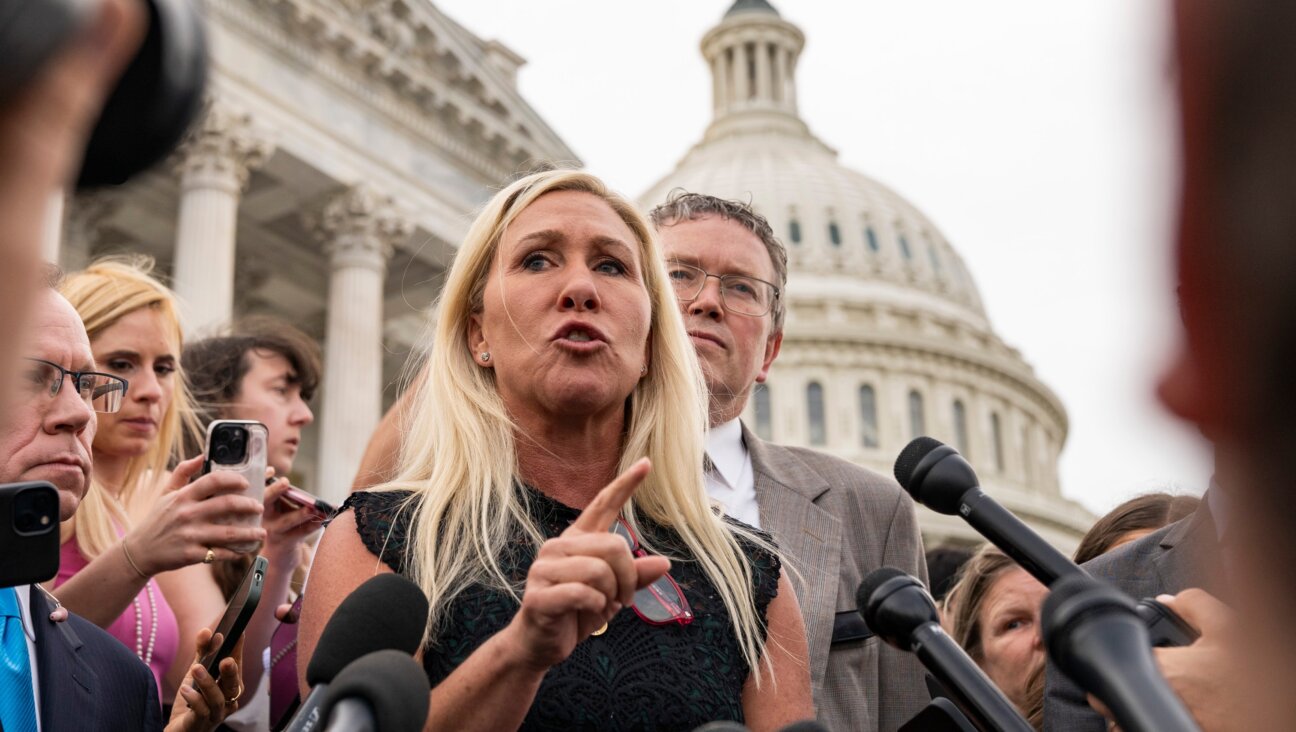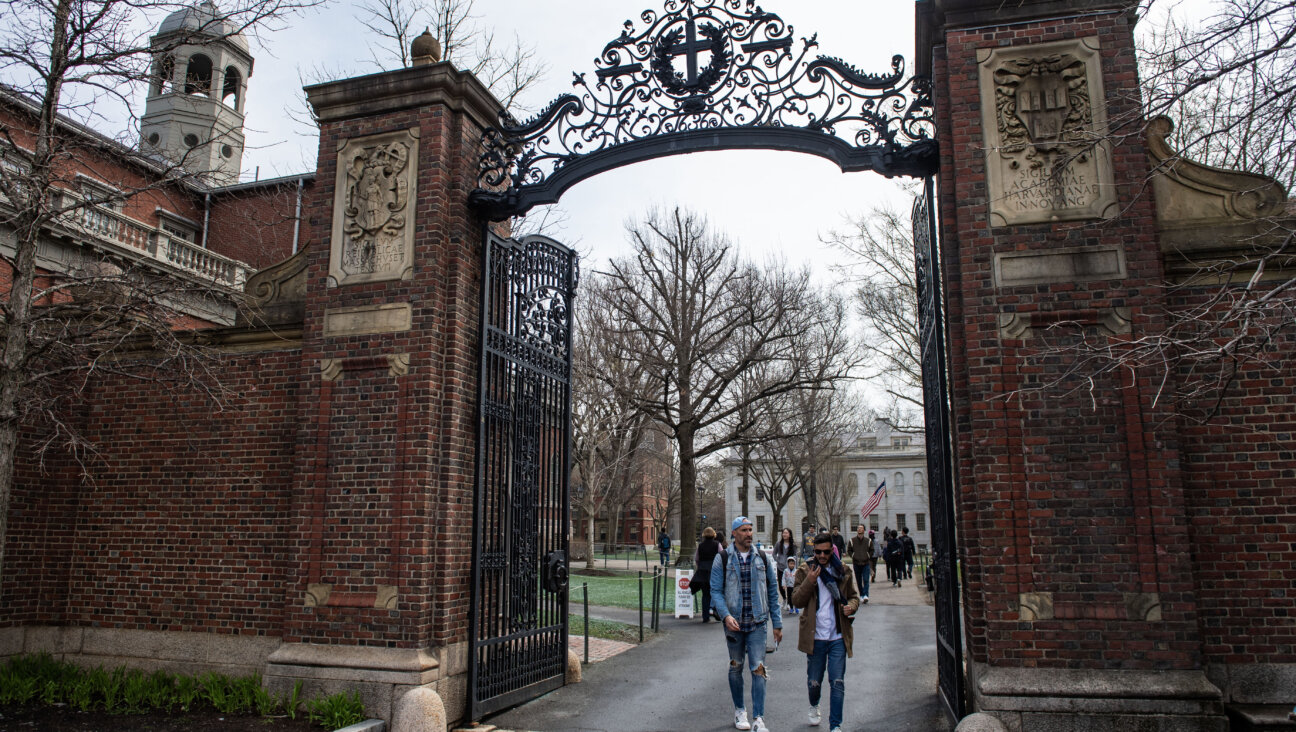Why We Must Raise the Alarm
In an opinion article in the February 5 issue of The New York Times, the national editor of the Forward argues that “it is time Jews recognize that the old strategies no longer work…. Jewish organizations and advocates of Israel fail to grasp that they are no longer viewed as the voice of the disenfranchised. Rather, they are seen as a global goliath… as such their efforts to raise the alarm increasingly appear as bullying” (“Playing the Holocaust Card”). This theme is one that surfaces from time to time among observers of the organized Jewish community, and needs to be addressed.
As the head of an organization mandated to fight antisemitism, I appreciate being reminded that we need to be introspective and constantly examine how we conduct our struggle. It is critical that we maintain our credibility. At a time when many in America are tired of victimization cries, it is vital that we speak out only after the facts are investigated and the dangers evaluated. It is as important for Jewish organizations such as ours to spend as much time and effort figuring out when something is not antisemitic as when something is.
In that sense, articles such as that of the Forward’s national editor are useful. However, the opinion article goes way beyond, suggesting a criticism that goes to the very heart of Jewish communal activity for decades. The Forward’s national editor argues that Jews today are frequently seen not as victims but as powerful entities, and that their protests against ill treatment might therefore be seen by others not as self-defense, but as bullying. On many levels, I strongly dispute that assessment.
First, those who charge Jews with too much power don’t need a flourishing Jewish community, such as the one we have in America today, to make that charge. Even when Jews were inordinately less influential, accusations such as this were hurled. Out of czarist Russia came “The Protocols of the Elders of Zion,” the notion that Jews were secretly meeting to gain control of the world. In Nazi Germany, the claim of a Jewish stranglehold over Germany was the basis for the anti-Jewish campaign. Indeed, one can state that the uniqueness of antisemitism, as opposed to other manifestations of hatred, is this mystical concept of Jews being all-powerful, alien and conspiratorial.
Certainly, in the face of such perennial accusations, Jews do have the option of lying low, of doing nothing to feed this monster. The Holocaust taught us otherwise. The experience of that horror — when Jews were truly powerless, alone in the world and trapped before the onslaught of the murderous Germans — taught us that never again could we find ourselves without real power, real options and real voices. None of the latter offered certainty of safety and security. Nothing could guarantee that. But at least it contained the possibility, if not the probability, of such protection.
And it has largely worked. Jewish life today is fundamentally different than it was 60 years ago, and not because antisemitism has disappeared. It surely hasn’t, as witnessed by the Göbbels-like ideology in the Arab world, the resurgence of anti-Jewish sentiments in Europe and the bias against Israel in the international community.
What is different is that Jews are not powerless. There is a State of Israel, a haven and protector of Jews. There is an America that continually shows its leadership in acting proactively against antisemitism, most lately in the passage of the critical Global Anti-Semitism Awareness Act, which mandates regular State Department reports on antisemitism around the world. And there is an organized Jewish community in America that knows there are limits to what it can accomplish, but also has known that its basic responsibility is to rally Americans and others to stand up when Jews are under attack.
Unfortunately, there are examples when Jews distort that mission. How we deal with the Holocaust and how we depict the condition of our people are not always done in the smoothest way, and we should ever be vigilant in presenting ourselves in the most effective manner.
The essence of the approach, however, has been remarkably successful. The fact that Jews are being attacked on the streets of Europe, that Arab leaders spread conspiracy theories about Jews among their populations, that Israel is hypocritically demonized, is not proof of conceptual failure. Rather, it demonstrates once again that antisemitism has a life of its own and that a moment can emerge that will allow it to spring forward again with fury.
The true test as to whether the underlying assertive approach is valid is whether we have succeeded in generating counter-activity to this resurgence of Jew hatred. Recognizing that there is still far to go, the mobilization of our community, with support from the Bush administration and by Congress, has led to pressure on Europe to acknowledge and take action against antisemitism. Even the United Nations has acted, though it would be naive to think that the problems there are still not immense.
It is easy to be critical of the organized community and talk about all the things that have not been accomplished. But it would be foolhardy to ignore the genuine accomplishments that have made Jews in America more secure than ever before, that have made Israelis realize that they have a reliable ally in the United States, and that have made the world know that it can’t act against Jews with impunity.
These gains are surely not simply attributable to the conceptual approach of Jewish advocacy that is under attack. Without that approach, however, Jewish life would be far less secure than it is. For that we should be thankful.
Abraham Foxman, national director of the Anti-Defamation League, is author of “Never Again? The Threat of the New Anti-Semitism” (HarperSanFrancisco, 2003).
The Forward is free to read, but it isn’t free to produce

I hope you appreciated this article. Before you go, I’d like to ask you to please support the Forward.
Now more than ever, American Jews need independent news they can trust, with reporting driven by truth, not ideology. We serve you, not any ideological agenda.
At a time when other newsrooms are closing or cutting back, the Forward has removed its paywall and invested additional resources to report on the ground from Israel and around the U.S. on the impact of the war, rising antisemitism and polarized discourse.
This is a great time to support independent Jewish journalism you rely on. Make a gift today!
— Rachel Fishman Feddersen, Publisher and CEO
Support our mission to tell the Jewish story fully and fairly.
Most Popular
- 1

Culture Trump wants to honor Hannah Arendt in a ‘Garden of American Heroes.’ Is this a joke?
- 2

Fast Forward Why the Antisemitism Awareness Act now has a religious liberty clause to protect ‘Jews killed Jesus’ statements
- 3

Fast Forward The invitation said, ‘No Jews.’ The response from campus officials, at least, was real.
- 4

Opinion A Holocaust perpetrator was just celebrated on US soil. I think I know why no one objected.
In Case You Missed It
-

Yiddish מחשבֿות פֿון אַן אַהיים־געקומענעם (אַ מלחמה־טאָגגבוך)Reflections of a soldier after returning home (a wartime diary)
דער מחבר איז אַ סטודענט אינעם ירושלימער העברעיִשן אוניווערסיטעט, אינעם צווייטן יאָר ייִדיש־לימוד
-

Fast Forward Why the Antisemitism Awareness Act now has a religious liberty clause to protect ‘Jews killed Jesus’ statements
-

News At Harvard, reports on antisemitism and anti-Palestinian bias reflect campus conflict over Israel
-

Opinion Is JB Pritzker’s very Jewish toughness the key to fighting Trump?
-
Shop the Forward Store
100% of profits support our journalism
Republish This Story
Please read before republishing
We’re happy to make this story available to republish for free, unless it originated with JTA, Haaretz or another publication (as indicated on the article) and as long as you follow our guidelines.
You must comply with the following:
- Credit the Forward
- Retain our pixel
- Preserve our canonical link in Google search
- Add a noindex tag in Google search
See our full guidelines for more information, and this guide for detail about canonical URLs.
To republish, copy the HTML by clicking on the yellow button to the right; it includes our tracking pixel, all paragraph styles and hyperlinks, the author byline and credit to the Forward. It does not include images; to avoid copyright violations, you must add them manually, following our guidelines. Please email us at [email protected], subject line “republish,” with any questions or to let us know what stories you’re picking up.














